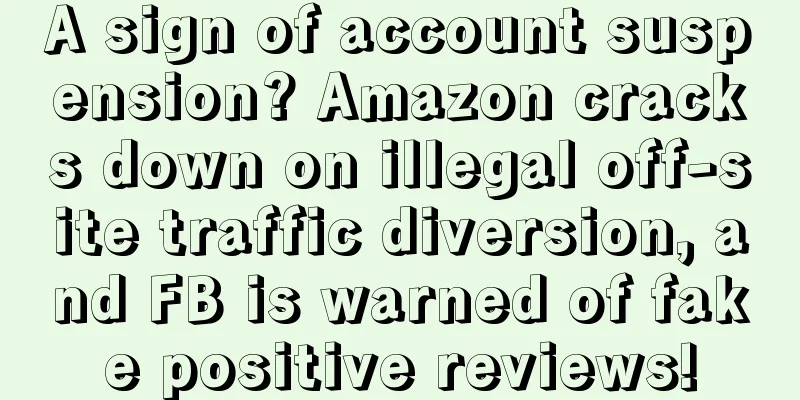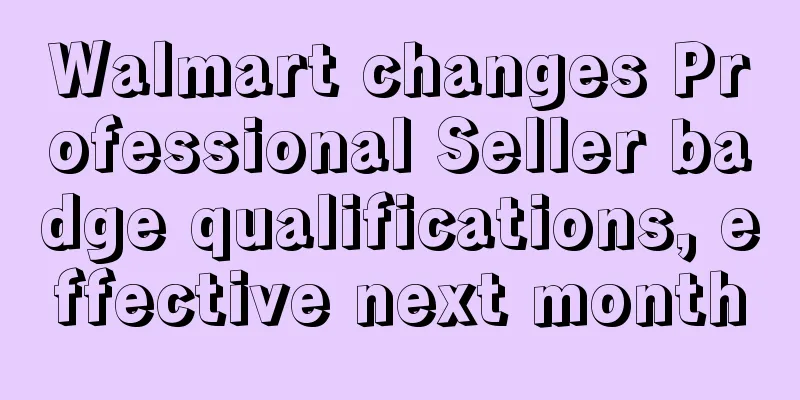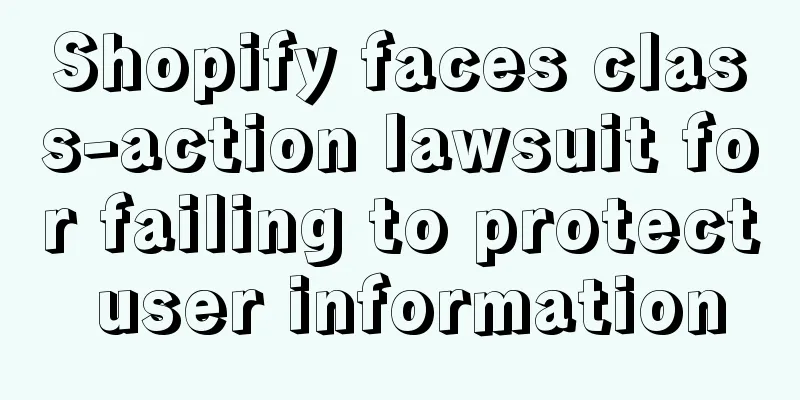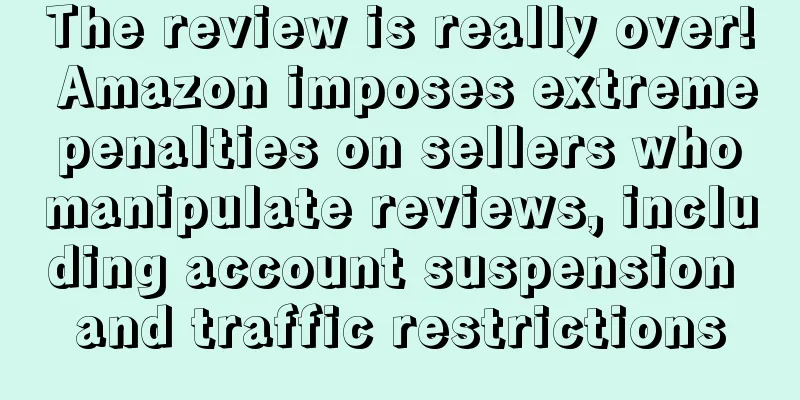|
Understand that by using off-site traffic, sellers can search for potential customers and display products/brands in front of them. The right off-site traffic can drive traffic growth for Amazon product listings, connect with potential users, and convert them into buyers. Off-site traffic has become an indispensable way for sellers to increase sales, but this channel has recently been hit frequently by platforms. First, Amazon detected and blocked off-site promotions, and recently it seems to have begun to strictly investigate Facebook's illegal traffic. Suspected of illegally diverting traffic to sellers’ Facebook accounts Amazon issues clarification announcement on off-site promotion It is learned that Amazon US recently issued a clarification announcement on its off-site promotion incentive policy, especially through providing cash back, coupons, discounts and other policies. Amazon also stated that it will severely crack down on illegal off-site traffic diversion operations. Cross-border navigation , crackdown on illegal operations outside the site is intensifying, Facebook traffic diversion may become the target? #Amazon##跨跨头条#跨跨电商视频号▲ Video account focuses on cross-border navigation
It is understood that Amazon's off-site promotion incentive policy allows sellers to promote product discounts, coupons, deals and other activities on off-site channels, but it is only open to specific products. However, if sellers use coupons, deals and other means to promote products that are not supported by Amazon's incentive policies through off-site channels, it will be considered a violation of Amazon's Seller Code of Conduct. Amazon's announcement pointed out that specifically, "two-step URLs," "super URLs," "Funnels," "Treasurehunt," and any other form of false or misleading behavior are violations of Amazon's Seller Code of Conduct. Any operation that artificially improves search rankings is a violation. Why did Amazon suddenly launch a strong crackdown on off-site traffic diversion? Some sellers said that the announcement might be related to the sellers' illegal traffic diversion on Facebook. ▲ The picture comes from FB According to sellers, many sellers on Facebook have been suspected of manipulating reviews. One health product brand directly wrote "Buy one get two free on Amazon" on Facebook and promised to give a bottle directly to the buyer; while another brand directly guided buyers to give a good review and then gave a bottle for free. Amazon specifically emphasizes that sellers are responsible for account behavior even if the operations are handled by a third-party service provider. Sellers who have the above-mentioned illegal operations should immediately terminate these practices as they violate the Amazon Seller Code of Conduct. ▲ The picture comes from FB
Looking at Amazon's recent actions, it is not difficult to see that it is stepping up its crackdown on illegal off-site promotions. Although off-site promotion is a channel allowed by Amazon, as the number of sellers who illegally divert traffic and fake positive reviews increases, this piece of pure land is gradually falling into the vortex of false positive reviews. The problem of fake reviews is old Amazon and Facebook were warned It is learned that previous research shows that among the more than 20 Facebook groups related to Amazon fake reviews investigated, each group has an average of 16,000 members. In more than 560 posts per day, there are sellers who inflate sales or positive reviews, with an average price of about $6 per order. The UK competition watchdog CMA has repeatedly urged Facebook to crack down on fake reviews, and Facebook has also deleted 16,000 groups on its platform that traded fake reviews for products and services. ▲ The picture comes from FB
It is reported that the CMA began to crack down on fake reviews in 2019 and urged Facebook and eBay to check fake reviews on the platform for the first time that year. In January 2020, Facebook promised to better identify, investigate and delete groups that buy and sell false and misleading reviews to prevent them from appearing again. However, a year later, Facebook still hasn’t solved the problem of fake reviews, and other platforms are no exception. Just a while ago, according to Bloomberg, the Federal Trade Commission is cracking down on false reviews of e-commerce products and has issued warnings to more than 700 companies about this issue. The list of companies warned includes Apple, Amazon, Facebook, Walmart, etc. The FTC warned that companies found using deceptive tactics such as fake reviews could be fined up to $43,792 per violation. Meanwhile, earlier this year, a British consumer rights group found that Amazon sellers were buying fake reviews through social networking sites. In June, the UK competition regulator said it had launched an investigation into Amazon and Google to confirm whether they were taking effective action to curb fake reviews on their sites. Fake reviews have always been criticized by many buyers, and it is also the same problem faced by all e-commerce platforms. It is foreseeable that in the future, these platforms will attach great importance to illegal off-site traffic diversion, fake reviews and other operations, and will severely crack down on the above-mentioned illegal behaviors to protect the rights and interests of consumers.
|










